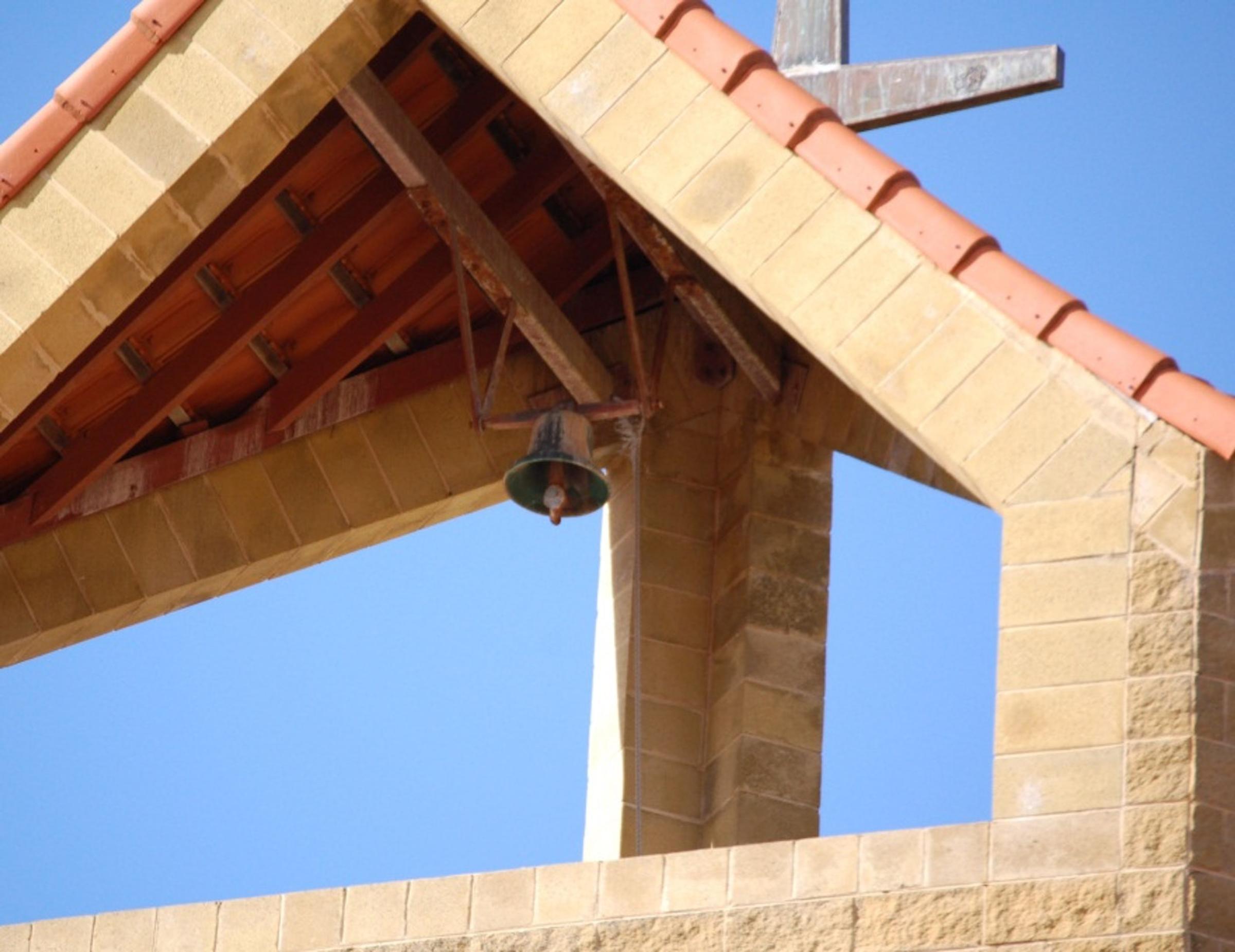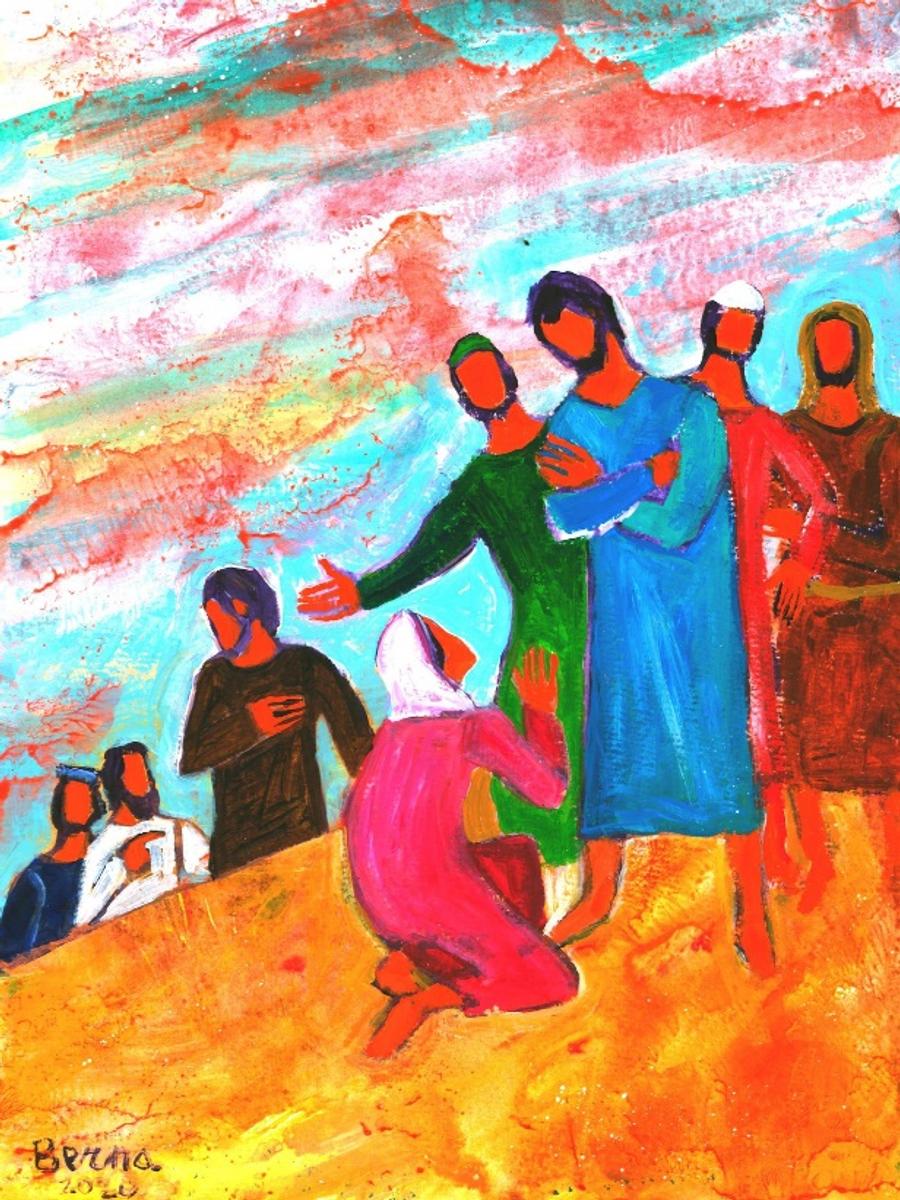Liturgy

Community Mass
In Week 6, Community Mass will be prepared by students in Year 12. Families are especially welcome to attend. It will be the last Community Mass prepared by the Year 12 Class of 2023.
In Week 7, there will be a whole College Eucharist dedicated to fathers and father figures on Friday 1 September at 7:30am in the St Louis Sports Centre, and this will be instead of Mass in the Chapel.
Friday 25 August – Year 12 Community Mass – Chapel 8:00am
Friday 1 September – Mass for Father figures – St Louis Sports Centre 7:30am
GOSPEL REFLECTION for the 20th Sunday in Ordinary Time
Until quite recently in many cultures around the world events or experiences that had no ready explanation were put down to evil forces. This was certainly true in Jesus’ day. Diseases, physical deformities, mental illnesses, accidents, bad weather patterns and defeats in battle were attributed either to God’s vengeance or the work of a demon. Although we no longer hold this to be true, we still hear this line from some people today.
In Sunday’s Gospel, the Syro-Phoenician woman considers herself cursed for having a daughter who is tormented by a demon. It is very unlikely that her daughter is possessed by the devil. She probably had a chronic illness that could not be cured. Furthermore, the woman is also considered cursed by others because she is a Gentile, a non-Jew. In fact, this story is unsettling and rather unflattering to Jesus on several levels.
Because of her ethnicity and religion, the disciples do not think she should ask for anything from Jesus. He seems to concur with them. If it wasn’t for the woman’s courage and persistence, she would never have got what she wanted. And by Jesus referring to them as dogs, he seems to agree with the contempt with which the Jews held the Gentiles.
Again, it is the woman’s quick wit and faith which turns the situation around. She domesticates the racial slur and argues that if she is to be considered a dog, she is not a wild one but of the house variety where she should be able to enjoy the leftovers. The power of her insight and the rightness of her cause catches Jesus off-guard, her daughter is healed, and everyone is taught a lesson about how the Kingdom of God breaks through in the most extraordinary ways.
This story also tells us of the power of intercessory prayer. The woman goes through her ordeal not for herself but for her daughter. Her faith in Jesus is the vehicle by which someone else’s life is enriched. So too for us. As Christians many of us regularly tell others, whom we know are in need, that we will pray for them. Often these people, some who do not share our faith, are touched by this kindness.
When we make our prayer intercessory, either at home or in the Prayer of the Faithful at Mass, it can be our finest hour. It can be the time when we forget about ourselves and our needs for a while and ask for the needs of someone else, even if we don’t know them. This type of prayer has the possibility of helping us place our lives in context and reminding us that while we have a seat at the world’s table, others are at our feet scavenging for scraps.
The best prayer reminds us that we have to get down and get dirty and work to raise up all of God’s children to the places of honour, which everyone deserves.
The reflection for this Sunday’s Gospel is by Jesuit priest, Fr Richard Leonard. Fr Richard Leonard SJ is the Director of the Australian Catholic Office for Film and Broadcasting, is a member of the Australian Catholic Media Council and is author of Preaching to the Converted, Paulist Press, New York, 2006.

